Discover 12 open access teaching modules on environmental socio-scientific issues (SSI) to prepare pre-service teachers for a timely science and mathematics education. The modules cover subject knowledge of environmental SSIs and how to deal with them, implications for learning & teaching processes, pedagogical concepts to lesson design, and the role of teachers’ backgrounds in affecting the teaching of SSI. The ENSITE modules for HEI can be used in lectures, seminars, or workshops.
Environmental Socio-Scientific Issues in Initial Teacher Education
Modules for teachers in higher education on environmental socio-scientific issues
12 modules support teachers in:
LEARNING
Development of competences in dealing with environmental SSI themselves.
- O1 Nature of SSI
- O2 Reasoning & critical thinking
- O3 Collecting data
- O4 Analysing big data
- O5 Decision-making
- O6 Negotiating social, political or ethical dimensions in SSI
TEACHING
Acquiring teaching skills to support your students in developing competences in environmental SSI.
- O7 Aims of SSI and the curriculum
- O8 Beliefs on teaching SSI
- O9 Designing an SSI lesson I, focus on didactics
- O10 Designing an SSI lesson II, focus on methods
- O11 Scaffolding
- O12 SSI and assessment
The nature of Socio-Scientific-Issues
Covid-19 Vaccination, Building of Wind Turbines in Populated Areas, Electric Cars vs Fuel Powered Cars
Use this module and the guidelines as a basis and introduction of environmental socio-scientific issues for all other modules.
Reasoning, Argumentation & Critical Thinking
Pesticides, biodiversity, ecosystem, ecology, argumentation
To provide resources and strategies to help prospective teachers to grasp underlying ideas and to create effective learning environments for reasoning, argumentation and critical thinking.
Collecting data
Epidemic Data, Basic Principles for Collecting Data, Data Collection Tools
To present a foundation for data collection and data analysis in the context of environmental data sources to be used in lectures and seminars for mathematics and science students in the initial teacher education.
Analysing big data
Trajectory from Raw Data to Data Visualization in the Context of Global Warming, Ecological Footprints, Good and Misleading Practices
To let students explore and visualize datasets and how visualizations can be used to tell (different) stories about environmental issues.
Decision-Making
Food as multi context phenomenon, Food Market
To provide resources, strategies, and activities for developing competences of prospective science teachers in decision-making based on confronting scientific positions on example of food provision for the world.
Negotiating Social, Political or Ethical Dimensions in Socio-Scientific Issues
Velocities, Acoustics, Effects of Noise on Health, Environmental Problems Caused by Mobility, Economic and Social Aspects of Mobility
Discover meaningful circumstances in the direct everyday environment that can be used for SSI teaching.
Aims of Socio-Scientific Issues and the Curriculum
Theoretical Frameworks for Analysing Students’ Argumentation, Classroom Tasks, Evaluating Students’ Tasks
Show aspects of how environmental socio-scientific issues (EnvSSI) are related to educational objectives, how they are intended in the curricula and can be implemented in the classroom.
Beliefs on Teaching Socio-Scientific Issues
Beliefs about Teaching SSI, Questionnaire, Invasive Species, Alternative Source of Protein, Pedagogical Approaches
This module helps pre-service teachers recognize how their own beliefs, narratives, cultural backgrounds, and personal identities can influence their choice to teach and how to teach SSI.
Developing a Socia-Scientific issue lesson I - Focus on didactic aspects
Plastic Dilemma as SSI, History & Background of Plastics, Plastic Categories & Properties, Environment, Microplastics, Recycling, Waste, Designing a Lesson
Support pre-service teachers in designing SSI lessons on plastic waste, that are related to ESD and IBL.
Designing a Socio-Scientific Issue Lesson II - Focus on Methods
Aircraft Transport, Running Water, Science in Outdoor Observations, Tree as Important Environmental Object, Water as the Source of Energy, Carbon Footprint
Designing an SSI lesson & enables pre-service teachers to support their students in developing creativity, critical thinking, and reasoning.
Scaffolding
Forest, Climate Change
A module for HE to be used in lectures and seminars for science and mathematics students in ITE to show pre-service teachers how they can support their students in dealing with a complex environmental SSI by providing a scaffolding framework.
Socio-Scientific Issues and Assessment
Environment, Fireworks, IBL, Student Learning Assessment
Pre-service teachers have the opportunity to reflect on how students' learning may be assessed in lessons involving SSIs. They develop competences related to assessment of content and skills related to dealing with SSIs.
Legend for modules that are closely connected to each other:
O3 Collecting data & O4 Analysing big data
Beliefs on teaching socio-scientific-issues
O9 Designing a socio-scientific lesson I, focus on didactics & O10 Designing a socio-scientific lesson II, focus on methods
Your feedback is important to us!
Do you have suggestions for improving our teaching materials? Would you like to share your feedback or comments with us? Then click here and you will be redirected to our Feedback Padlet. We look forward to hearing from you.
Your ENSITE Team
The creation of these resources has been co-funded by the Erasmus+ programme of the European Union under grant no. 2019-1-DE01-KA203-005046. Neither the European Union/European Commission nor the project’s national funding agency DAAD are responsible for the content or liable for any losses or damage resulting of the use of these resources.


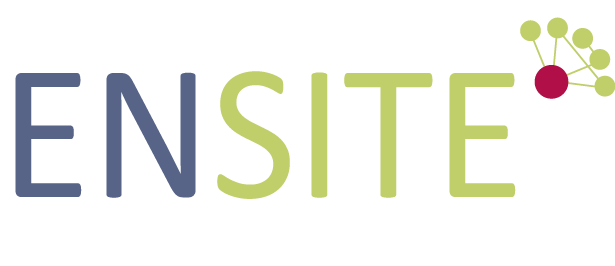








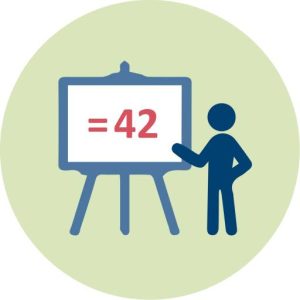





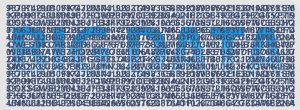


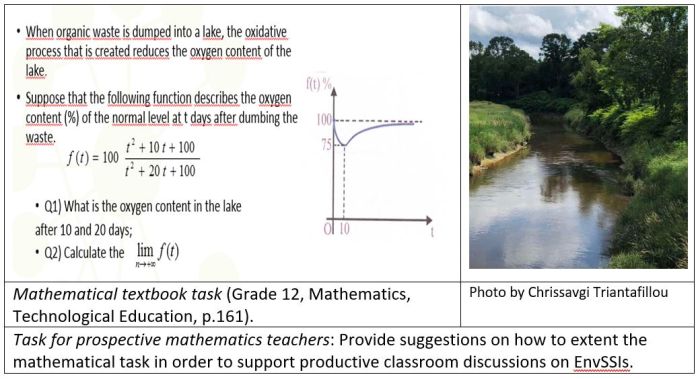

 A problem that is still unexplored in environmental socio-scientific issues (SSI) is how different people (e.g., from different cultural backgrounds, with different experiences) identify with the SSI they are exploring. Even though we know that peoples’ cultural experiences and personal narratives influence their decisions, not much is yet known about how teachers’ beliefs influence whether and how they teach SSI. Therefore, the aim of module 8 is to help teachers recognize how their own beliefs, narratives, cultural backgrounds, and personal identities might influence their choice to teach or not teach specific SSI, and how they teach it. With the development of a questionnaire, based on the review of the literature, the module helps teachers to reflect on their own beliefs, narratives and biases teaching SSI. This tool also helps perspective teachers understand their limitations when it comes to teaching SSI, and critical reflect on them. We developed 3-4 case studies of teachers teaching specific SSI with their classes. These case studies present specific biases that teachers have (their own subject background, personal narratives, cultural background, beliefs about teaching science). The case studies also include examples from intercultural classes, identifying issues of concern when presenting SSI in diverse classroom settings.
A problem that is still unexplored in environmental socio-scientific issues (SSI) is how different people (e.g., from different cultural backgrounds, with different experiences) identify with the SSI they are exploring. Even though we know that peoples’ cultural experiences and personal narratives influence their decisions, not much is yet known about how teachers’ beliefs influence whether and how they teach SSI. Therefore, the aim of module 8 is to help teachers recognize how their own beliefs, narratives, cultural backgrounds, and personal identities might influence their choice to teach or not teach specific SSI, and how they teach it. With the development of a questionnaire, based on the review of the literature, the module helps teachers to reflect on their own beliefs, narratives and biases teaching SSI. This tool also helps perspective teachers understand their limitations when it comes to teaching SSI, and critical reflect on them. We developed 3-4 case studies of teachers teaching specific SSI with their classes. These case studies present specific biases that teachers have (their own subject background, personal narratives, cultural background, beliefs about teaching science). The case studies also include examples from intercultural classes, identifying issues of concern when presenting SSI in diverse classroom settings.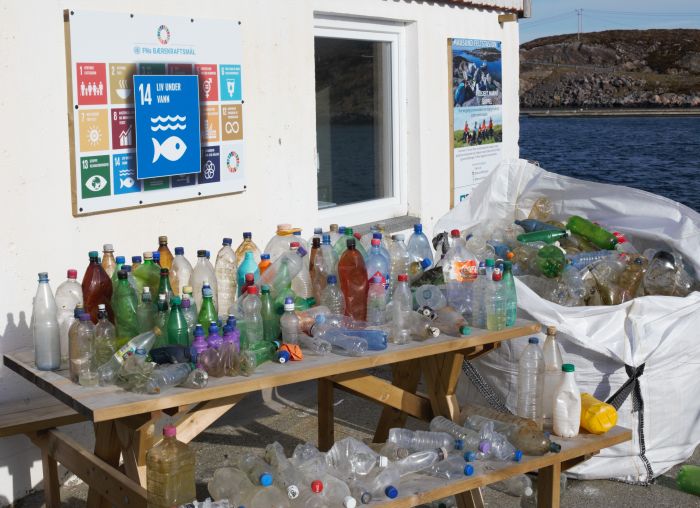


 When was the last time that you watched fireworks?
When was the last time that you watched fireworks?